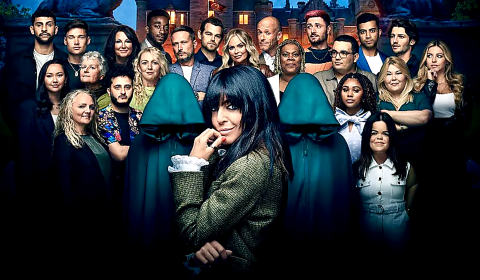Many straight men struggle to form close relationships with one another without relying on a female intermediary. Perhaps it’s time for them to take a leaf out of women’s books and assume responsibility for dismantling the patriarchal systems which are negatively impacting their mental health.
![]()
Whether you’ve been long acquainted with the idea, or you’re delving into ‘decentring men’ for the first time – maybe you even first came across the term in my previous article – there is no doubt that the anti-, or at least ‘side-stepping around men’ discourse has once again entered the cultural zeitgeist.
While this political response is certainly a valid one in the current cultural climate, haven’t women already largely done the work of decentering men?
Aren’t the historical and ongoing strength of female friendships, women’s rejection of heterosexual dating compared with the higher rates of (visible) lesbian couples, or even the growing female representation in films which pass the Bechdel Test, a testament to this?
Women may still be suffering under patriarchal structures. Indeed, many of us may be complicit in their perpetuation at the expense of other women (particularly those of us who benefit from the devalued service labour of women in a lower social-status). Certainly, we’re a long way from emancipation.
Yet, women’s ability to decenter men, if the South-Korean 4B movement or the donning of Suffragette sashes by female MPs are anything to go by, perhaps isn’t the issue. Even if the backlash against feminism that we’re currently witnessing is more than a little alarming.
Maybe, then, it’s men who need to shoulder some of the responsibility for the insidious continuation of oppressive patriarchal structures.
Evidently, it’s not enough (for anyone, of any gender) for men to build homosocial bonds which, as Eve Kosofsky Segwick has written, allow them to protect and maintain their networks of power in order to sustain patriarchal privilege.
If the male loneliness epidemic is anything to go by, men’s seeming inability to decenter women from their own lives – whether as an object of desire of as a subjugated servant – is contributing to a crisis of masculinity and apparently concomitant state of poor mental health for young men.
While women are more likely to have more close friends and larger social networks than men, almost 15% of men report having no close friends at all.
Meanwhile, so-called ‘dating coaches’ are profiting off of men’s loneliness, as they preach – wrongly – that the only kind of men women want is a masculine one. They postulate that ‘real’ men don’t need to express their emotions, rather they need to up their protein, their weights, and their body count.
Only then, once they’ve made all of the relationships available to them transactional, will they be happy.
View this post on Instagram





















